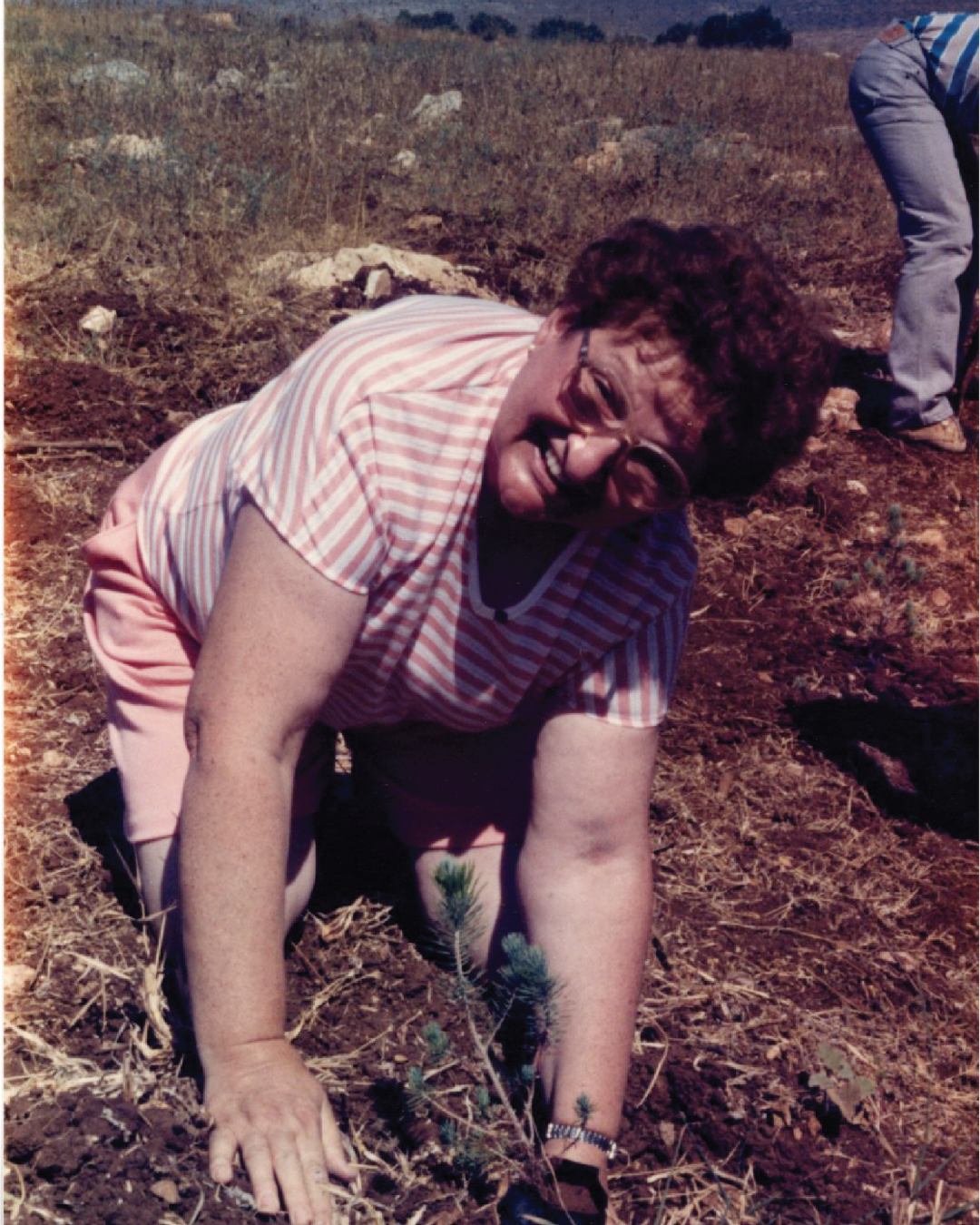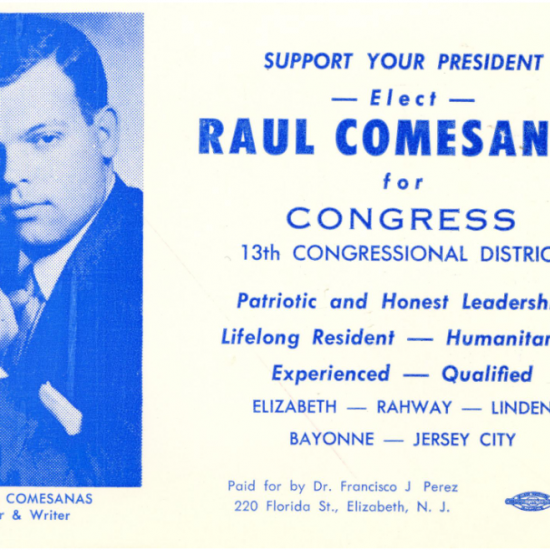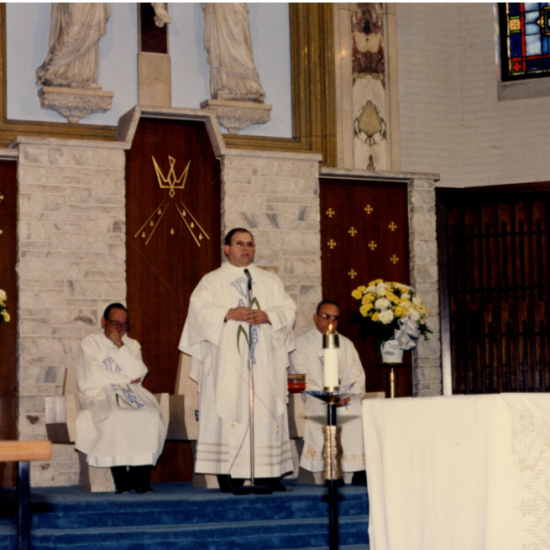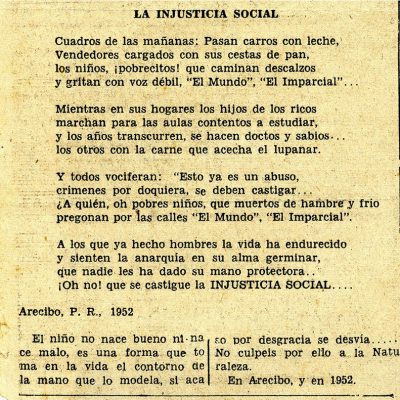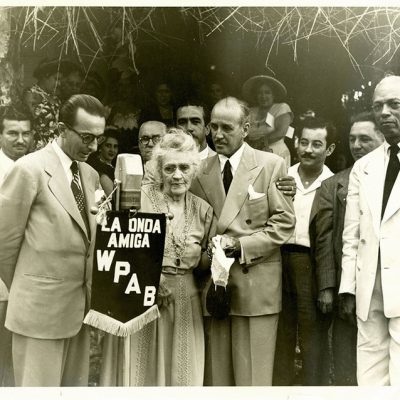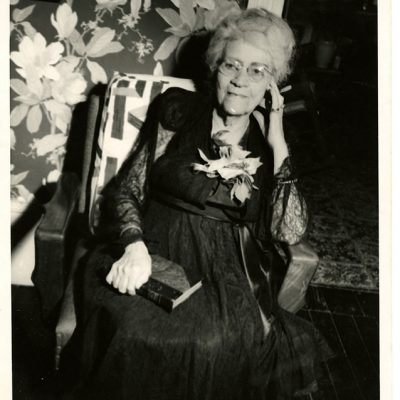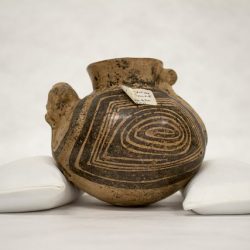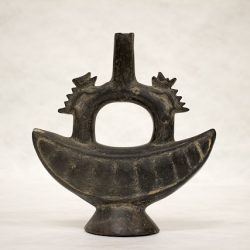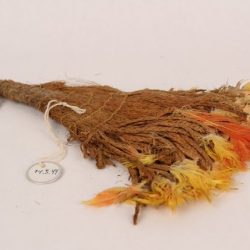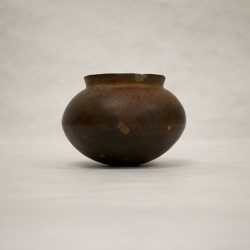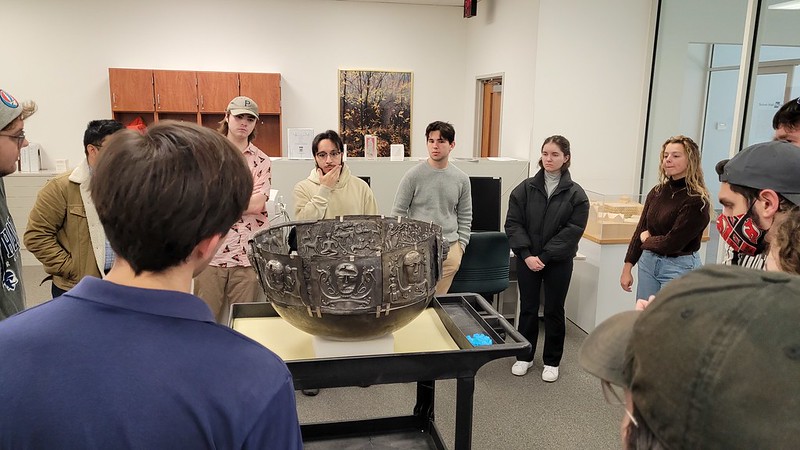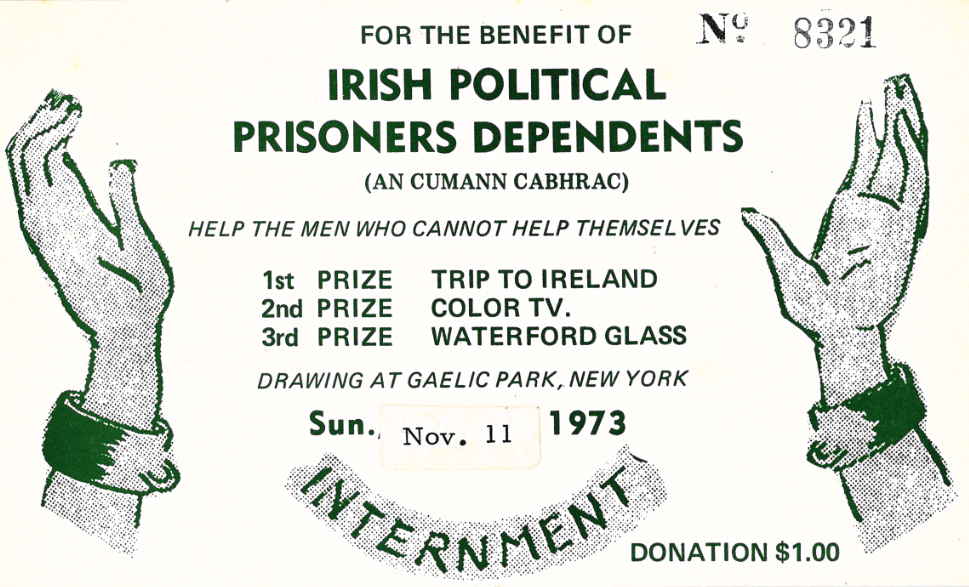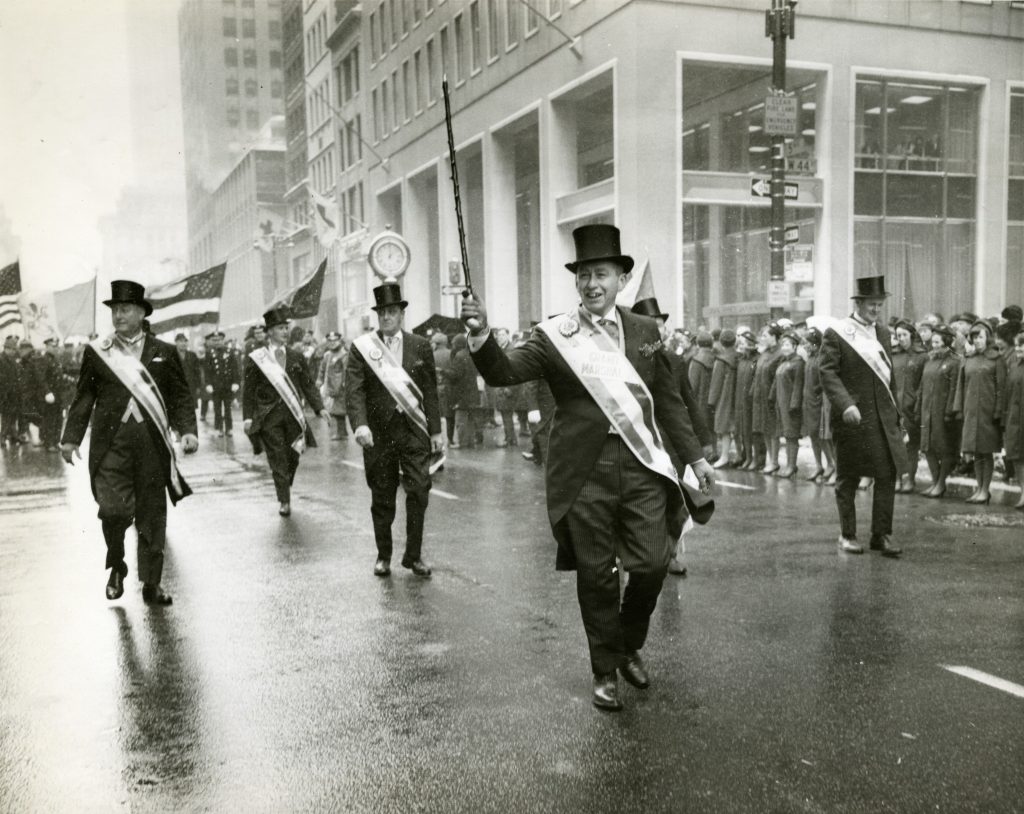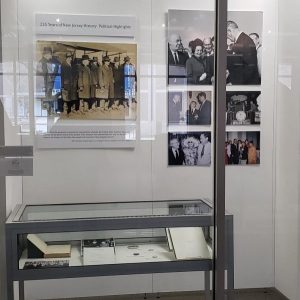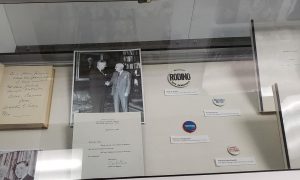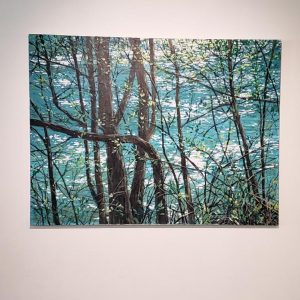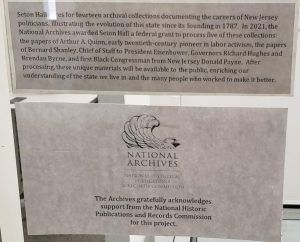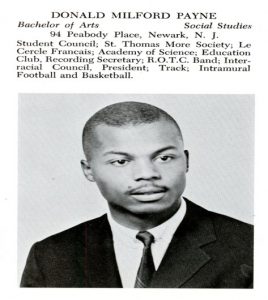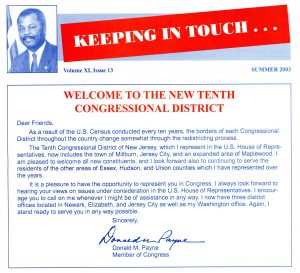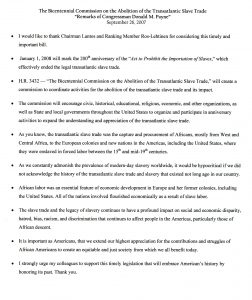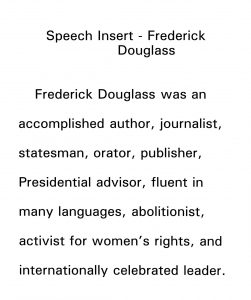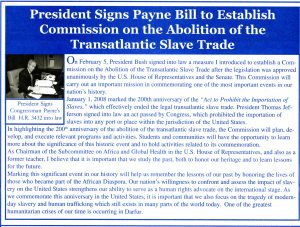Did you miss the “NJ Women of Interfaith Dialogue and Holocaust Education” presentation from Session I: Women and Gender in the Archives of the Conference on Women and Gender 2024 that took place on Friday, April 5, 2024?
Don’t worry! We are making the speech available here along with the slides used that day.
New Jersey Women of Interfaith Dialogue and Holocaust Education
Presented by: Athena Frade, Archdiocese of Newark and Rutgers University and Jacquelyn Deppe, Seton Hall University
Abstract
This presentation, based on research in Seton Hall’s archives, will share the stories of three devout women, each coming from a different faith and perspective, whose work intertwined because of their dedication to the importance of teaching Holocaust and genocide education.
First is sister Rose Thering, who started as a Dominican nun in Racine Wisconsin. She very quickly realized her passions, which led to her research on a doctoral thesis that would eventually affect Vatican II, and influenced the church’s publishing of the Nostra Aetate, which spoke on the Catholic Churches relationship with the Jewish faith. She then spent the rest of her career focusing on strengthening the ties between the Catholic faith and the Jewish faith, including involvement in the New Jersey Commission for Holocaust Education.
Second is Nancy Forsberg, who was a pastor for the Faith United Church of Christ. She founded the Union Interfaith Committee on Holocaust Awareness, which was one of the committees also instrumental to integrating the teaching of Holocaust education into the public-school curriculum, which would eventually become state-wide law.
Third is Luna Kaufman. Kaufman, who was born in Krakow, first lived through the German occupation of Krakow and later held as a prisoner the concentration camps of Plaszow and Leipzig. She was able to survive the Holocaust, and eventually emigrated to America. She and her husband settled in New Jersey, where Kaufman was an active part of the Jewish Community and became the first woman president of her Temple. It was later in life she began to work and advocate for Holocaust education, picked by former Governor Kean to work on the Advisory Council for Holocaust Education when it was first formed in 1982. Kaufman spoke at Forsberg’s Interfaith Committee, and would eventually find her way to speaking and teaching at Seton Hall, where she met and then worked with Sister Rose on Holocaust education.
Together, these women worked tirelessly to bring Holocaust education to New Jersey while simultaneously bridging an interfaith divide. Their work brought both to the attention of the State of New Jersey, where their efforts eventually culminated in the 1994 law that mandated the teaching of the Holocaust and genocide in New Jersey schools. As prominent women of faith, they used their knowledge and cooperation to make education better for every student, regardless of faith.
Presentation
In 1994, New Jersey became the second state in in the nation to mandate the teaching of the holocaust and genocide in all elementary and high schools in the state. This law is still on the books today, and continues to make sure school curricula properly cover and inform students about the importance of learning about and from genocide. But this law did not spring out of nowhere, but was instead the concerted effort of passionate professionals. Seton Hall is lucky enough to house some of these professionals’ collections of papers which include evidence of their efforts.
The Archives and Special Collections Center at Seton Hall University recently reprocessed and rehoused the collections of three prominent religious women, Sister Rose Thering, Nancy Forsberg, and Luna Kaufman, under a grant funded project, Feisty Women in Interfaith Dialogue: The Second Vatican Council Years, from the New Jersey Historical Commission. These collections allow scholars not only to explore the often-untold story of women’s activism in changing the terms of religious dialogue but in transforming the educational system, ensuring that their values would be instilled in future generations. Through our reprocessing we discovered these women accomplished this through their involvement in development of Holocaust Education in New Jersey.
This reprocessing project for these three collections entails updating folder titles to be more reflective of their contents, replacing folders with chemically neutral archival folders to slow down deterioration and acidification of the paper, replacing boxes with chemically neutral archival boxes, and placing photographs in transparent polypropylene sleeves to protect surrounding paper from off-gassing chemicals from the photo, and protecting the photo itself, allowing it to be handled and seen without removing it from its sleeve. These are essential steps that allow a collection to be accessible in terms of information discovery and physical handling. Furthermore, this preservation will ensure that the collections will be available for longer periods. Allowing these invaluable primary sources to continue serving students and scholars alike as they research points of view, collect evidence, explore agreements and contradictions to gain a deeper understanding of history.
Sister Rose Thering
Labeled as the “feisty nun” Sister Rose Thering was a strong proponent of Judeo-Christian relations as can be seen in her doctoral dissertation. Sister Rose Thering started as a nun in Racine, Wisconsin, joining the Racine Dominican sisters at the age of sixteen. From there, she would earn an undergraduate degree from Dominican College there, then a Master’s from St. Paul University in Minnesota, and finally a doctorate from St. Louis University. With her doctoral thesis, she made the decision to focus on how Jewish people were depicted in Catholic education textbooks. In particular, her work focused on the long running antisemitic myth, that the Jews killed Jesus, and how, even with absolutely no biblical proof of this, it was a myth that was being taught and retold in classrooms to unsuspecting students. This thesis would later prove influential enough to catch the attention of Pope John XXIII, and in the Second Vatican Council, her work was used to draft the 1965 document ‘Nostra Aetate’, a proclamation that transformed Jewish-Christian relations after 1965. But her work did not stop there. She then spent an entire career making efforts to connect with the Jewish community, and bridge the gap between the Catholic community and the Jewish one. That includes years of leading trips of Seton Hall students on educational tours of Israel, establishing workshops educating people on Judaism, and she was head of the Jewish-Christian Department here at Seton Hall University. Sister Rose went on to become a part of the New Jersey Holocaust Education Committee, the one that she, and fellow subject of this grant Luna Kaufman, were both a part of, and helped author the 1994 bill. She had been on the Governor’s Advisory Council on Holocaust education since its founding in 1982. However, by 1994, the committee was able to put together a comprehensive curriculum for New Jersey Public School students, going all the way from kindergarten up through 12th grade, educating students on genocide and the Holocaust.
What that looked like for young students was understanding topics such as ‘The Self and Others’, ‘Dislikes and Prejudice’ and simply being able to define ‘The Holocaust’ (MSS 0016 Box 5 Folder 23) while older students were analyzing what propaganda and how it was used in both the holocaust and other genocides, and different types of resistance in the face of genocide. By the time students were in high school, the curriculum became much more in depth, older students being able to comprehend and digest the heavy topics being covered. It was a curriculum aimed at teaching students not only what the holocaust was and why it matters, but also was meant to instill a lifetime of resistance towards the mechanisms that push societies towards genocide.
A lifetime of resisting genocide was a large part of sister Rose’s career, and in the later part of her life, eventually the Sister Rose Thering Endowment was established in her name, meant to honors others who have done major work in holocaust education and interfaith work. Amongst its recipients were the author of the book Night, Eli Weisel, and Luna Kaufman. And it is an endowment that is still gifted today, extending Sister Rose’s dedication to interfaith education and holocaust and genocide education up into the present day. For the remainder of the semester, you can see an exhibit the archives have put up focusing on the legacy of Sister Rose Thering, to get an idea of the scope her works and papers encompass.
Nancy Forsberg
Nancy Forsberg became the pastor for the First Congregational Church in Union, New Jersey in 1961, but had already begun to do work of interfaith relations before that. She had spent her summers with the Intergroup Relations Experience, doing tours of churches in Germany and Switzerland, and doing a study tour in the Middle East covering Turkey, Greece, Egypt, Syria, Lebanon, Jordan, and Israel. in both 1960 and 1963, she would do independent study and work in Israel, living with both Jewish and Arab families. She had also spent time as a freelance lecturer in America and Canada, where she lectured on the Middle East and Israel, all of which she saved in her papers.
During her time as the Pastor of First Congregational Church, her work in interfaith relations did not stop. She was able to start conversations by first educating her parish with the help of other holocaust educators, inviting speakers like Luna Kaufman, fellow educators on the horrors of the holocaust. And that spirit of collaboration, also present in Sister Rose’s work, is an important throughline with the education these women provided. Both Sister Rose and Nancy Forsberg recognized the importance of teaching holocaust and genocide studies, and knew part of teaching it, was to reach out to Jewish voices and survivors, and make sure their experiences were heard in their own religious communities. In her own words, “Many People still regard the Holocaust as a matter of Jewish concern, but nothing could be farther from the truth” (Mss0022 Box 12 Folder 5).
While also doing things like creating a successful bus ministry, a form of community outreach which involved bussing people to Sunday services they might not have otherwise been able to go to, and the creation of a nursery school, she also founded the Union Interfaith Committee on Holocaust Studies in 1982. To initiate this committee’s work, she invited people to her congregation during the ‘National Days of Remembrance of the Victims of the Holocaust’ that year, April 18-25th, and from there, endeavored to organize a permanent committee on Holocaust Awareness of Union Township. Finally, she was a part of the Holocaust Council of New Jersey Professors, whose goals and standards for education would eventually influence the 1994 law, influencing those statewide standards to ensure a comprehensive holocaust and genocide education.
Luna Kaufman
Luna Kaufman was born in Krakow, Poland where she lived through the German occupation and survived the concentration camps of Plaszow and Leipzig. Once she was liberated, she returned to Krakow and obtained a degree before emigrating to Israel and then to America. She and her husband settled in New Jersey, where Kaufman was an active part of the Jewish Community and became the first woman president of her Temple.
Luna Kaufman’s passion for Holocaust Education began in the 1970’s. During this decade, she was becoming active in discussing her religion and her experience surviving the Holocaust to audiences of students and adults alike. A trip to Amsterdam as the president of Temple Shalom with Rabbi Goldman and a confirmation class of the Hebrew School solidified her interest and need to be involved in Holocaust Education. In 1982 her efforts picked up when she was appointed to the Advisory Council on Holocaust Education by Governor Thomas Kean. On this council she served with Sister Rose Thering who she met previously during a 1974 Holocaust observance held at Seton Hall University where her prison dress was set upon the altar.
Their friendship and respect for one another was strong as was their passion for Judeo-Christian Relations and Holocaust Education. In pages of Luna Kaufman’s diary, Sister Rose appears throughout it. This page talks about the memorial that took place at Yad Vashem for Sister Rose Thering and how Luna Kaufman had to iron out some details.
Together, Luna Kaufman and Sister Rose Thering served on the Human Resources Committee of the New Jersey Advisory Council for Holocaust Education. This committee had the basic charge:
“to compile an annotated and descriptive listing of ‘experts’ available to implement Holocaust Education objectives in the schools and to recommend available training programs” (MSS 0102, Folder 7, Box 3).
According to the committee, ‘experts’ were individuals who were survivors, liberators, second generation persons, social scientists, historians, prosecutors of Nazi war criminals, artists, and community leaders who could address moral and ethical dimensions (MSS 0102, Folder 7, Box 3). Furthermore, the committee determined an interview and screening process to determine which individuals would be best suited to participate in different aspects of Holocaust education.
Conclusion
One of the things that unite these women’s collections, besides their own lifetimes of collaboration on education together, is the fact that these collections can still be used for that education. Each woman collected a lifetime of holocaust and education materials- from dozens of conferences and speeches, to various trips to the middle east or to concentration camps, there are boxes of materials focused on educating people on the horrors of the holocaust. And, now that they’ve been reprocessed on an archival level, each collection is easier to search through than ever. These were women dedicated to education, and the continued use of their works and papers in that education, would be a fitting way to remember the work these women did.
New Jersey Women of Interfaith Dialogue and Holocaust Education – PowerPoint
For more information about these collections check out the finding aids:
If you have further questions, contact us at archives@shu.edu or (973)761-9476. To schedule an appointment to view materials, please submit a Research Appointment Request Form by clicking here.
